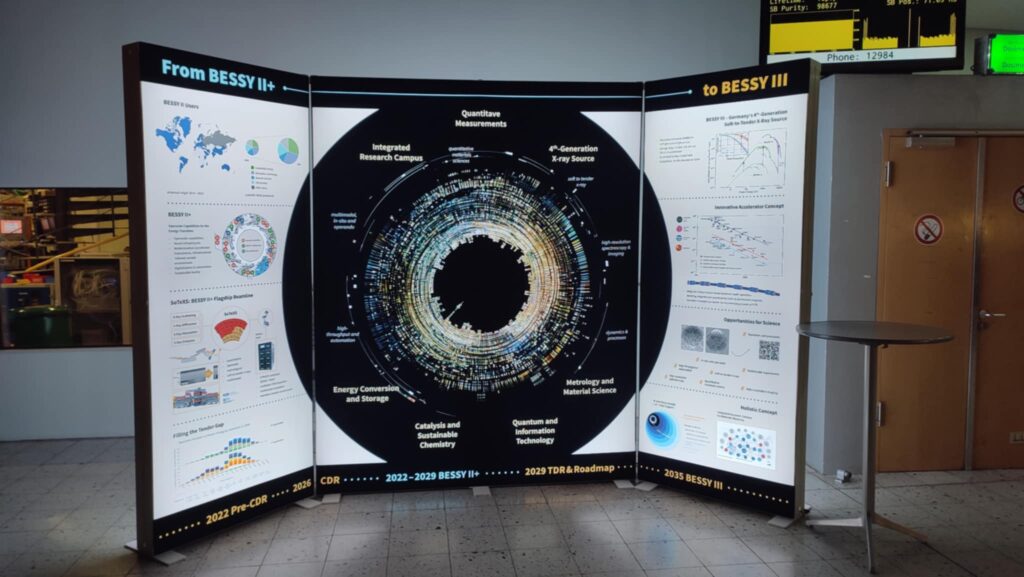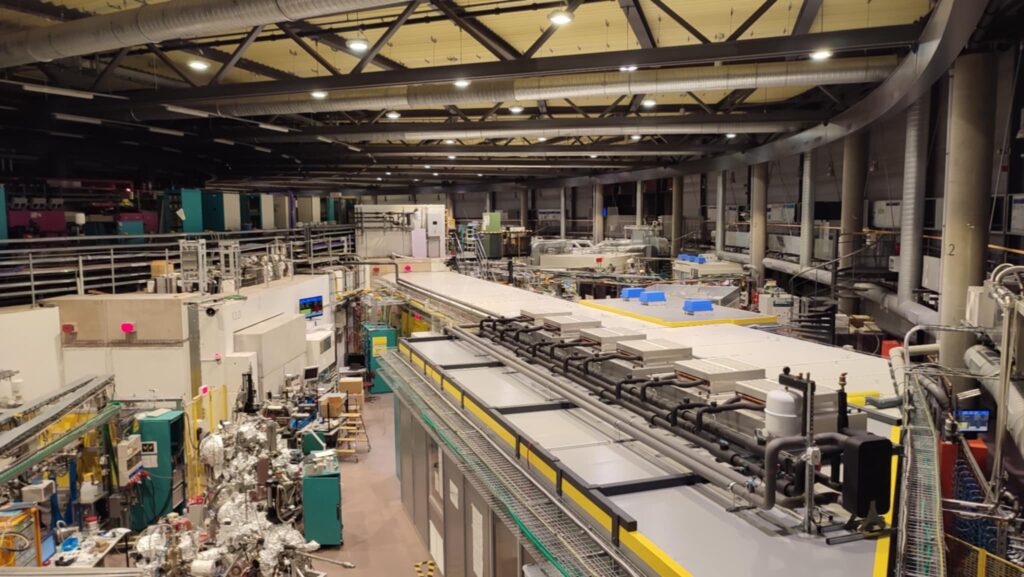Panagiotis Tzevelkidis, a PhD student in the Inorganic Chemistry Laboratory at the National and Kapodistrian University of Athens (NKUA), Greece, has completed his internship at Helmholtz-Zentrum Berlin (HZB), where he gained first-hand experience at one of Europe’s leading research infrastructures. His stay in Berlin took place from May 3 to May 11, during which he actively participated in a cutting-edge beamtime campaign at the BESSY II synchrotron light source.

From May 5 to May 11, Panagiotis joined the experiment “Probing the nature of the promoting MnOx species on cobalt-based thin film model catalysts at relevant Fischer-Tropsch reaction conditions using operando XAS”, supervised by Dr. Athanasios Skaltsogiannis from the HZB “Interface Design” department.
Reflecting on his experience, Panagiotis highlighted the unique value of the NEPHEWS Early Stage Researcher (ESR) programme:
“My participation in the NEPHEWS programme, which enabled me to visit the BESSY II light-source at Helmholtz-Zentrum Berlin, was a truly unique and inspiring experience. The opportunity to visit such a world-class facility significantly broadened my scientific perspective and enriched my research skills. I was delighted to meet Professor Marcus Bär and Dr. Athanasios Skaltsogiannis whose expertise and collaboration have already sparked ideas for future joint projects. In addition, I was thrilled to take part in the beamtime campaign of Dr. Skaltsogiannis for in situ monitoring the activity of Fischer-Tropsch catalysts. Without the support of the NEPHEWS funding, this visit would not have been possible, and I am deeply grateful for the chance it provided to expand both my knowledge and my professional network.”
The internship not only provided Panagiotis with valuable training in state-of-the-art techniques but also fostered connections with leading scientists in the field. His successful participation stands as a testament to the impact of international research collaboration and the opportunities created through programs like NEPHEWS.

This internship was part of the Early Stage Researcher (ESR) program (learn more here), which supports young researchers in accessing world-class facilities and developing their careers through international collaboration.